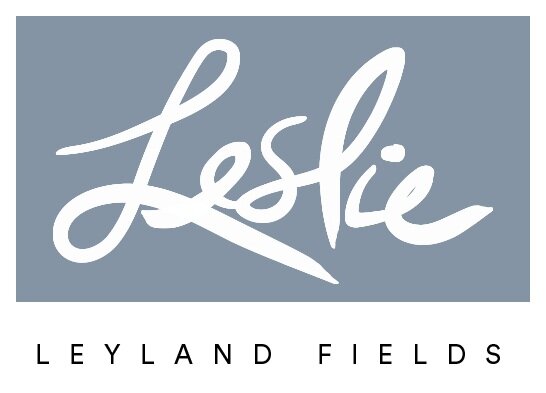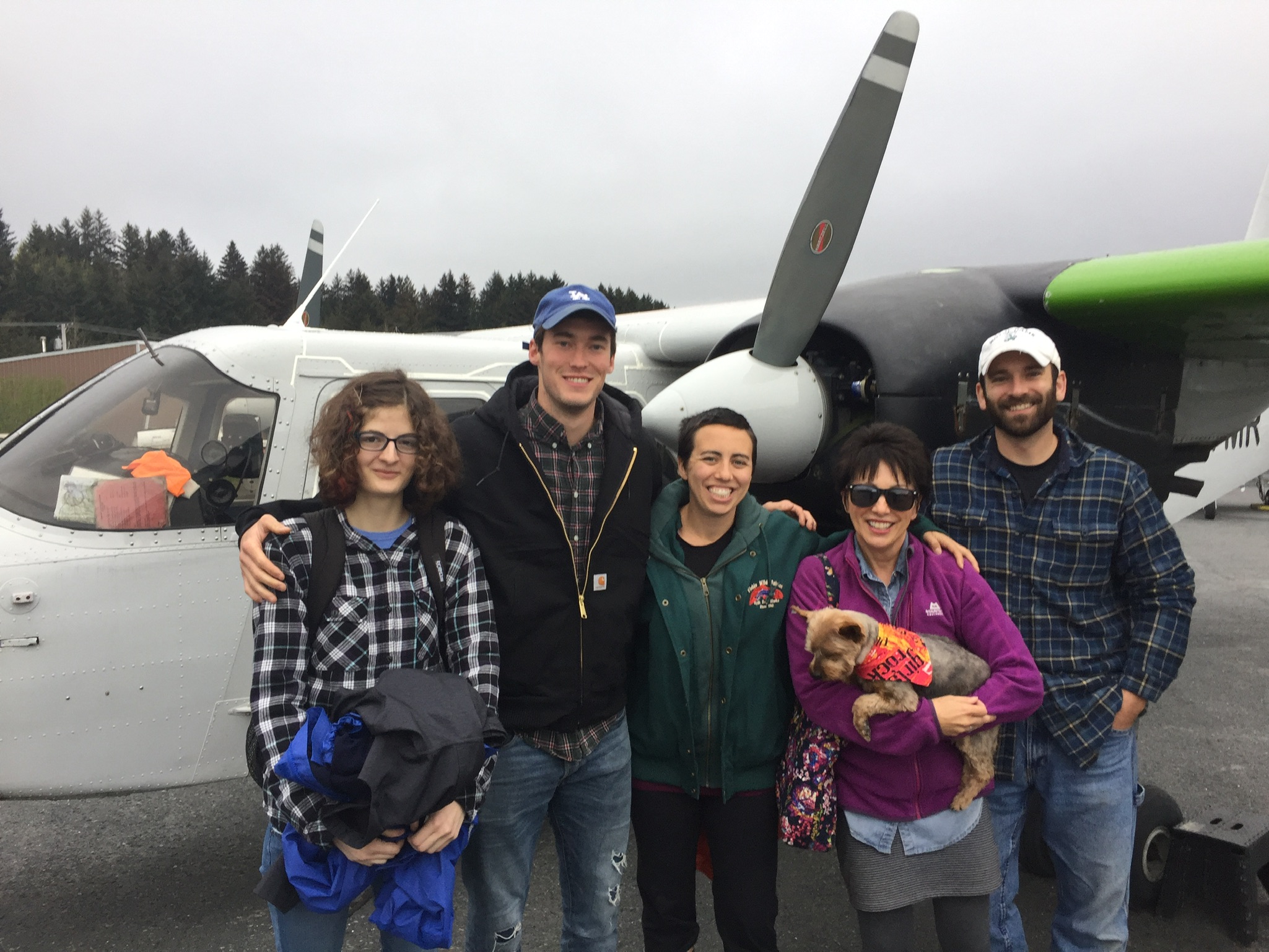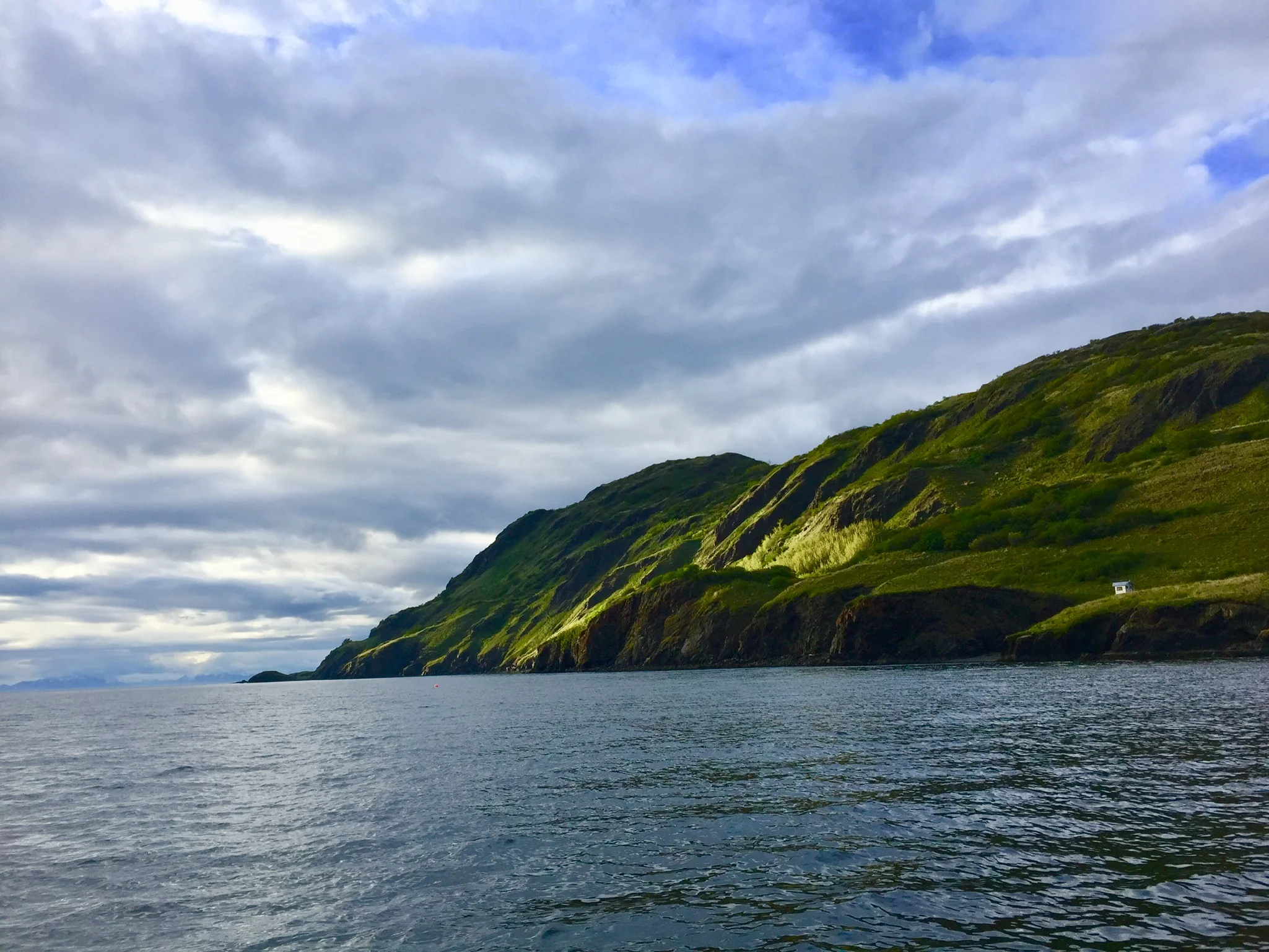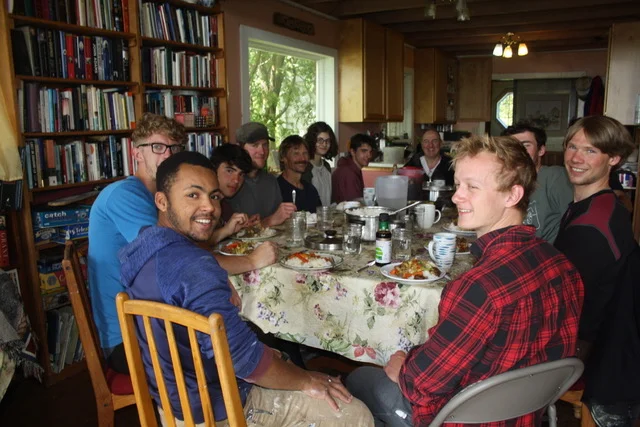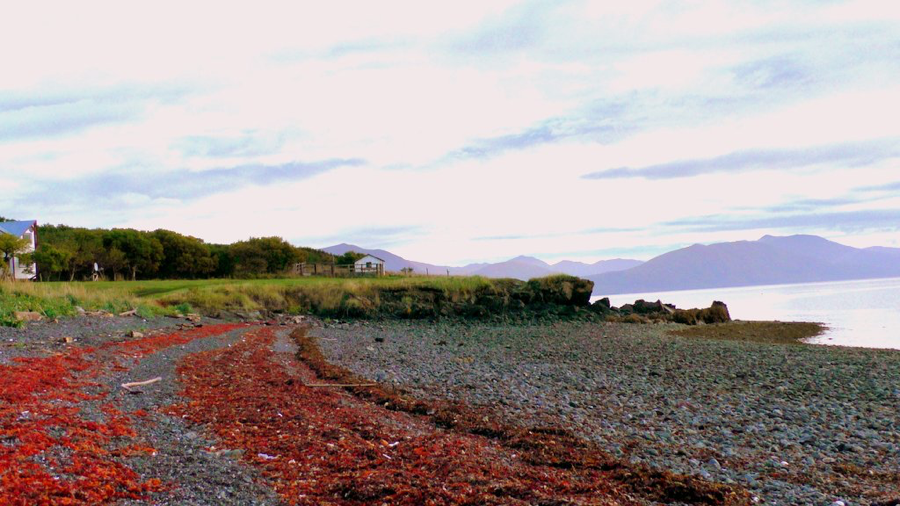Hold on to Every Fragment
This is us, the ones who flew out together to fish camp, (Harvester Island, Alaska: my daughter and new son-in-law, a crewman (Jonah), and my assistant, Ashley. I’m wearing sunglasses because I’ve just had minor surgery on an eye. Oh, and that’s Sophie in my arms, who promised to be my seeing eye dog for this flight.
I couldn’t see well, but good enough to catch my breath at the first glimpse of Harvester after a long winter:
Already green. And the ocean, still, always magical liquid silver and blue.
But it hasn’t been an easy start to our commercial fishing season. I haven’t written here because our internet is intermittant, more Out-ernet than In-ternet. We’ve had a few people leave. We’ve had a medical emergency. I am under a book deadline (3 weeks left), cooking for 14. And something has happened I cannot speak about that presses so heavily on my heart . . . . Praying constantly for justice, mercy and light to come from this terrible dark.
Yet there have been many moments of happiness. Here, the delivery of our frozen foods! They come from Seattle, in bulk, by boat, to smaller boat, to tractor, to our hands to the freezer. We felt rich, like Christmas had come.
(Will we really eat all this food? Ummm, look at who we're feeding! And how many homemade pizzas does it take to fill all these manly appetites? This many!)
There have been kayak trips, hikes, and walks along the tideline. I always take a camera on my first beach walk after a winter of storms. There are a hundred stories wound up in the sea weed and kelp, which I love, twisted and dried, tossed high on the beach head.
Death is always a part of winter's story. A fawn who didn't make it. Clam and mussels shells eaten by otters. And interlopers---cans and plastic that wash up.
But there is always life as well. These oystercatcher eggs, perfectly camouflaged for the beach, soon to hatch. The shark's purse, prints of a massive mama bear, a Kodiak bear, and her cub as they patrol the sand, on a walkabout for dinner.
Everything that washes up into our memory, onto our tideline is worth seeing and saving. Listen to memoirist Patricia Hampl:
“When I was a child, I had a powerful sense that I wanted to commemorate things. I even remember thinking at the time that it was a strange word for a twelve-year old to use. . . . it is the idea that every life is sacred and that life is composed of details, of lost moments, of things that nobody cares about, including the people who are wounded or overjoyed by those moments. I don’t think people allow themselves to value their lives enough.They ignore and discard these fragments. I would like my writing to be precise enough, detailed enough so that the attention I bring to bear on something unlocks a door to the reader’s life. In that way, by honoring one’s own life, it’s possible to extend empathy and compassion to others.”
This summer, I am trying to honor this life and this place. May you too, honor your life this summer. Walk the tidelines, metaphorical or real to see what fragments wash up. In God’s economy, none of it is wasted, not the fall of a sparrow from your tree or the loss of a strand of your hair or the fall of a fawn goes unnoticed by God. And since the One who is Running All Things including galaxies takes care to notice lost sheep, dying sparrows, and fallen fawns, we should notice as well.
In words or camera or painting or song or letter, send these holy fragments out upon the waters, that empathy, beauty and compassion may wash upon our beaches as common and as lovely as the weeds of the sea.
